Dear Zazie,
Here is today’s Lovers’ Chronicle from Mac Tag.
Rhett
The Lovers’ Chronicle
Dear Muse,
a theme so compellin’
it had to come back
“In misty watercolors”
ha, well played my dear
“Thank you”
we talked about
the ones we have created
“Now we can turn towards
the ones to come”
absolutely
wherever they take us
one constant
runs through it
the way we will be
© copyright 2023 mac tag/cowboycoleridge all rights reserved
© copyright 2021 mac tag/cowboy coleridge all rights reserved
© copyright 2020 mac tag/cowboy coleridge all rights reserved
who may tell the tale
of all gone wrong,
weigh the loss,
and mete want
assess woe
in verse enclose
bid sigh on sigh,
and wish and wish
till nothin’ness has flown,
and we have come
silent
at the doorway
facin’ need
only our eyes
is it time
© copyright 2019 mac tag/cowboy coleridge all rights reserved
five hundred mile
road trip tomorrow
goin’ back in time
about forty years
back to a place
full of memories
some, best left
undisturbed
© copyright 2017 mac tag/cowboy Coleridge all rights reserved
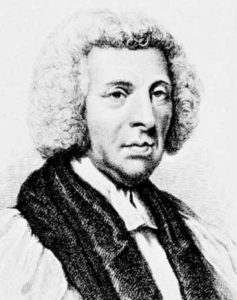
Today is the birthday of Thomas Percy (Bridgnorth, Shropshire, England, 13 April 1729 – 30 September 1811 Staffordshire, England); poet, Bishop of Dromore, County Down, Ireland. Before being made bishop, he was chaplain to George III. Perhaps best remembered for his Reliques of Ancient English Poetry (1765), the first of the great ballad collections; possibly the one work most responsible for the ballad revival in English poetry that was a significant part of the Romantic movement.
Reliques of Ancient English Poetry (1765) excerpt
- Over the mountains,
And over the waves,
Over the fountains,
And under the graves;
Over the floods that are deepest,
Which do Neptune obey;
Over the rocks that are steepest,
Love will find out the way.- “Love Will Find Out the Way”; in its published form this is suspected to have been extensively written by Percy himself; it was later used by Pierre de Beaumarchais in Act III of The Marriage of Figaro (1778).
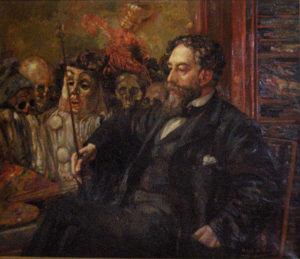 Today is the birthday of James Ensor (James Sidney Edouard, Baron Ensor; Ostend, Belgium; 13 April 1860 – 19 November 1949 Ostend); painter and printmaker, an important influence on expressionism and surrealism who lived in Ostend for almost his entire life. He was associated with the artistic group Les XX.
Today is the birthday of James Ensor (James Sidney Edouard, Baron Ensor; Ostend, Belgium; 13 April 1860 – 19 November 1949 Ostend); painter and printmaker, an important influence on expressionism and surrealism who lived in Ostend for almost his entire life. He was associated with the artistic group Les XX.
During the late 19th century, much of Ensor’s work was rejected as scandalous, particularly his painting Christ’s Entry Into Brussels in 1889 (1888–89). The Belgian art critic Octave Maus famously summed up the response from contemporaneous art critics to Ensor’s innovative (and often scathingly political) work: “Ensor is the leader of a clan. Ensor is the limelight. Ensor sums up and concentrates certain principles which are considered to be anarchistic. In short, Ensor is a dangerous person who has great changes. … He is consequently marked for blows. It is at him that all the harquebuses are aimed. It is on his head that are dumped the most aromatic containers of the so-called serious critics.”[citation needed] Some of Ensor’s contemporaneous work reveals his defiant response to this criticism. For example, the 1887 etching “Le Pisseur” depicts the artist urinating on a graffitied wall declaring (in the voice of an art critic) “Ensor est un fou” or “Ensor is a Madman.”
Ensor’s paintings continued to be exhibited and he gradually won acceptance and acclaim. In 1895 his painting The Lamp Boy (1880) was acquired by the Royal Museums of Fine Arts of Belgium in Brussels, and he had his first solo exhibition in Brussels. By 1920 he was the subject of major exhibitions; in 1929 he was named a Baron by King Albert, and was the subject of the Belgian composer Flor Alpaerts’s James Ensor Suite; and in 1933 he was awarded the band of the Légion d’honneur. Alfred H. Barr, Jr., the founding director of the Museum of Modern Art in New York, after considering Ensor’s 1887 painting Tribulations of Saint Anthony (now in MoMA’s collection), declared Ensor the boldest painter working at that time.
As Ensor’s production of new works was diminishing, he increasingly concentrated on music—although he had no musical training, he was a gifted improviser on the harmonium, and spent much time performing for visitors. Against the advice of friends, he remained in Ostend during World War II despite the risk of bombardment. In his old age, he was an honored figure among Belgians, and his daily walk made him a familiar sight in Ostend. He died there following a short illness, on 19 November 1949 at the age of 89.
Gallery
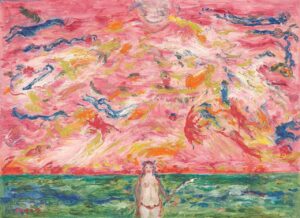
Naissance de Vénus
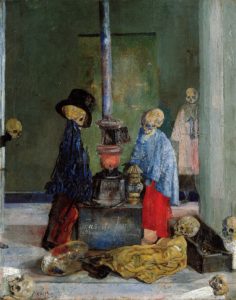
Skeletons Warming Themselves (1889) oil on canvas, 74.8 x 60 cm., Kimbell Art Museum, Fort Worth
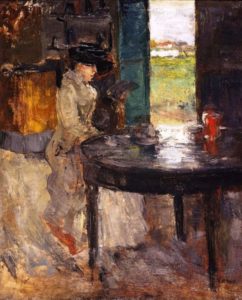
The Wait
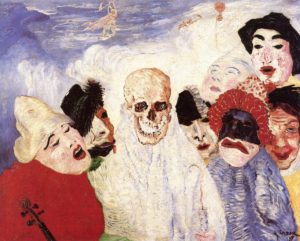
Death and the Masks
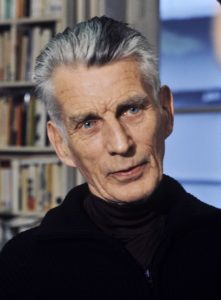 Today is the birthday of Samuel Beckett (Samuel Barclay Beckett, Dublin, 3 April 1906 – 22 December 1989 Paris); avant-garde novelist, playwright, theatre director, and poet, who lived in Paris for most of his adult life and wrote in both English and French. In my opinion, one of the most influential writers of the 20th century. Beckett’s work offers a bleak, tragicomic outlook on human existence, often coupled with black comedy and gallows humour, and became increasingly minimalist in his later career. He is considered one of the last modernist writers, and one of the key figures in what has been called the “Theatre of the Absurd”. Beckett was awarded the 1969 Nobel Prize in Literature “for his writing, which—in new forms for the novel and drama—in the destitution of modern man acquires its elevation.”
Today is the birthday of Samuel Beckett (Samuel Barclay Beckett, Dublin, 3 April 1906 – 22 December 1989 Paris); avant-garde novelist, playwright, theatre director, and poet, who lived in Paris for most of his adult life and wrote in both English and French. In my opinion, one of the most influential writers of the 20th century. Beckett’s work offers a bleak, tragicomic outlook on human existence, often coupled with black comedy and gallows humour, and became increasingly minimalist in his later career. He is considered one of the last modernist writers, and one of the key figures in what has been called the “Theatre of the Absurd”. Beckett was awarded the 1969 Nobel Prize in Literature “for his writing, which—in new forms for the novel and drama—in the destitution of modern man acquires its elevation.”
The 1960s were a time of change for Beckett, both on a personal level and as a writer. In 1961, he married Suzanne Dechevaux-Dumesnil in a secret civil ceremony in England (its secrecy due to reasons relating to French inheritance law). The success of his plays led to invitations to attend rehearsals and productions around the world, leading eventually to a new career as a theatre director. In 1957, he had his first commission from the BBC Third Programme for a radio play, All That Fall. He continued writing sporadically for radio and extended his scope to include cinema and television. He began to write in English again, although he also wrote in French until the end of his life. He bought some land in 1953 near a hamlet about 60 kilometres (40 mi) northeast of Paris and built a cottage for himself with the help of some locals.
From the late 1950s until his death, Beckett had a relationship with Barbara Bray, a widow who worked as a script editor for the BBC. Knowlson wrote of them: “She was small and attractive, but, above all, keenly intelligent and well-read. Beckett seems to have been immediately attracted by her and she to him. Their encounter was highly significant for them both, for it represented the beginning of a relationship that was to last, in parallel with that with Suzanne, for the rest of his life.” Barbara Bray died in Edinburgh on 25 February 2010.
In 1969 the avant-garde filmmaker Rosa von Praunheim shot an experimental short film portrait about Beckett, which he named after the writer.
In October 1969 while on holiday in Tunis with Suzanne, Beckett heard that he had won the 1969 Nobel Prize in Literature. Anticipating that her intensely private husband would be saddled with fame from that moment on, Suzanne called the award a “catastrophe”. While Beckett did not devote much time to interviews, he sometimes met the artists, scholars, and admirers who sought him out in the anonymous lobby of the Hotel PLM Saint-Jacques in Paris – where he gave his appointments and took frequently his lunches – near his Montparnasse home. Although Beckett was an intensely private man, a review of the second volume of his letters by Roy Foster on 15 December 2011 issue of The New Republic reveals Beckett to be not only unexpectedly amiable but frequently prepared to talk about his work and the process behind it.
Suzanne died on 17 July 1989. Confined to a nursing home and suffering from emphysema and possibly Parkinson’s disease, Beckett died on 22 December. The two were interred together in the cimetière du Montparnasse in Paris and share a simple granite gravestone that follows Beckett’s directive that it should be “any colour, so long as it’s grey”.
Beckett wrote:
“Where I am, I don’t know, I’ll never know, in the silence you don’t know, you must go on, I can’t go on, I’ll go on.”
“My mistakes are my life.”
“We are all born mad. Some remain so.”
“Dance first. Think later. It’s the natural order.”
who may tell the tale
of the old man?
weigh absence in a scale?
mete want with a span?
the sum assess
of the world’s woes?
nothingness
in words enclose?
From Watt (1953)
Bid us sigh on from day to day,
And wish and wish the soul away,
Till youth and genial years are flown,
And all the life of life is gone.
- Watt, Addenda, p. 248
time she stopped
sitting at her window
quiet at her window
only window
facing other windows
other only windows
all eyes
all sides
high and low
time she stopped
From Rockaby (1980)
- Yes, in my life, since we must call it so, there were three things, the inability to speak, the inability to be silent, and solitude, that’s what I’ve had to make the best of.
- The Unnameable (1954)
.
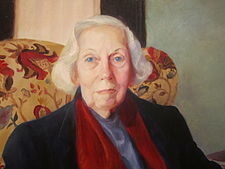 Today is the birthday of Eudora Welty (Eudora Alice Welty, Jackson, Mississippi April 13, 1909 – July 23, 2001 Jackson, Mississippi); short story writer and novelist who wrote about the American South. Her novel The Optimist’s Daughter won the Pulitzer Prize in 1973. Welty was awarded the Presidential Medal of Freedom, among numerous awards including the Order of the South. She was the first living author to have her works published by the Library of America. Her house in Jackson has been designated as a National Historic Landmark and is open to the public as a house museum.
Today is the birthday of Eudora Welty (Eudora Alice Welty, Jackson, Mississippi April 13, 1909 – July 23, 2001 Jackson, Mississippi); short story writer and novelist who wrote about the American South. Her novel The Optimist’s Daughter won the Pulitzer Prize in 1973. Welty was awarded the Presidential Medal of Freedom, among numerous awards including the Order of the South. She was the first living author to have her works published by the Library of America. Her house in Jackson has been designated as a National Historic Landmark and is open to the public as a house museum.
She continued to live in her family house in Jackson until her death from natural causes on July 23, 2001. She is buried in Greenwood Cemetery in Jackson. Her headstone has a quote from The Optimist’s Daughter: “For her life, any life, she had to believe, was nothing but the continuity of its love.”
“I learned quickly enough when to click the shutter, but what I was becoming aware of more slowly was a story-writer’s truth: The thing to wait on, to reach for, is the moment in which people reveal themselves…”
“Wherever you go, you meet part of your story.”
“I like the feeling of being able to confront an experience and resolve it as art.”
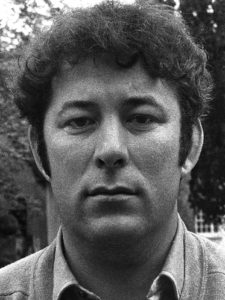 Today is the birthday of Seamus Heaney (Seamus Justin Heaney; Tamniaran, County Londonderry, Northern Ireland, 13 April 1939 – 30 August 2013 Blackrock, Dublin); poet, playwright and translator. He received the 1995 Nobel Prize in Literature. Among his best-known works is Death of a Naturalist (1966), his first major published volume.
Today is the birthday of Seamus Heaney (Seamus Justin Heaney; Tamniaran, County Londonderry, Northern Ireland, 13 April 1939 – 30 August 2013 Blackrock, Dublin); poet, playwright and translator. He received the 1995 Nobel Prize in Literature. Among his best-known works is Death of a Naturalist (1966), his first major published volume.
He became a lecturer at St. Joseph’s College in Belfast in the early 1960s, after attending Queen’s University and began to publish poetry.
Heaney was a professor at Harvard from 1981 to 1997, and its Poet in Residence from 1988 to 2006. From 1989 to 1994, he was also the Professor of Poetry at Oxford. In 1996, was made a Commandeur de l’Ordre des Arts et des Lettres and in 1998 was bestowed the title Saoi of the Aosdána. Other awards that he received include the Geoffrey Faber Memorial Prize (1968), the E. M. Forster Award (1975), the PEN Translation Prize (1985), the Golden Wreath of Poetry(2001), the T. S. Eliot Prize (2006) and two Whitbread Prizes (1996 and 1999). In 2011, he was awarded the Griffin Poetry Prize and in 2012, a Lifetime Recognition Award from the Griffin Trust. His literary papers are held by the National Library of Ireland.
Heaney met Marie Devlin, a native of Ardboe, County Tyrone, while at St Joseph’s in 1962; they married in August 1965. A school teacher and writer, Devlin published Over Nine Waves (1994), a collection of traditional Irish myths and legends. Heaney’s first book, Eleven Poems, was published in November 1965 for the Queen’s University Festival.
His body is buried at the Cemetery of St. Mary’s Church, Bellaghy, Northern Ireland. The headstone bears the epitaph “Walk on air against your better judgement”, from one of his poems, “The Gravel Walks”.
—from “Joy Or Night: Last Things in the Poetry of W. B. Yeats and Philip Larkin“
The Cure at Troy
- Human beings suffer,
they torture one another,
they get hurt and get hard.
No poem or play or song
can fully right a wrong
inflicted or endured.- “Doubletake” from The Cure at Troy (1990) – The Cure at Troy excerpts
- History says don’t hope
On this side of the grave.
But then, once in a lifetime
The longed for tidal wave
Of justice can rise up
And hope and history rhyme.
So hope for a great sea-change
on the far side of revenge.
Believe that a further shore
is reachable from here.
Believe in miracles
and cures and healing wells.- “Doubletake”, from The Cure at Troy (1990)
- Call the miracle self-healing:
The utter self-revealing
double-take of feeling.
If there’s fire on the mountain
Or lightning and storm
And a god speaks from the sky - That means someone is hearing
the outcry and the birth-cry
of new life at its term.- “Doubletake”, from The Cure at Troy (1990)
Mac Tag

No Comments on "The Lovers’ Chronicle 13 April – memories, reprise – verse by Thomas Percy – art by James Ensor – birth of Samuel Beckett, Eudora Welty & Seamus Heaney"